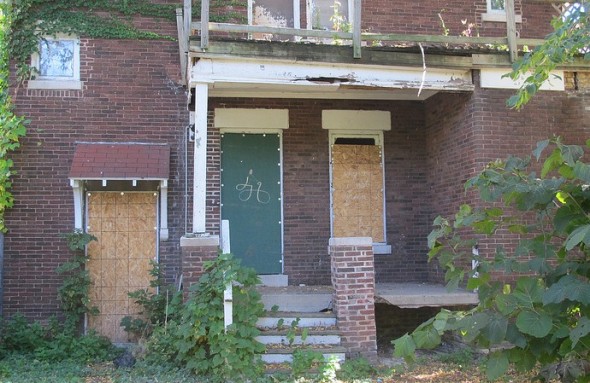Building Better Neighborhoods
Community groups get $400,000 to rehab homes and support home ownership.

The Reclaiming Our Neighborhoods initiative will reinvest funds to promote home ownership and rehabilitate foreclosed homes throughout the city.
Community organizations that received a total of $400,000 under the Reclaiming our Neighborhoods initiative are planning to use the funds to strengthen current programs and are ready to start investing.
“Anyone living in our neighborhood can take advantage of home improvement resources right now,” said Will Sebern, director of fund development and communications at Layton Boulevard West Neighbors (LBWN). “Anyone who wants to know more about the home ownership or rehab opportunities should contact us right away,” he added.
The Metropolitan Milwaukee Fair Housing Council awarded LBWN and Select Milwaukee a $175,000 grant after a competitive application process. ACTS Housing, Washington Park Partners and Harambee Great Neighborhood Initiatives also received a $175,000 grant, while Sherman Park Community Association (SPCA), Washington Park Partners and Harambee Great Neighborhood Initiative were awarded $50,000.
Learn more
You can contact your neighborhood community organization to learn more about the various resources being offered through the Reclaiming Our Neighborhoods initiative:
ACTS Housing: (414) 933-2215
Washington Park Partners: (414) 344-1818
Harambee Great Neighborhood Initiatives: (414) 273-1815
Layton Bouleveard West Neighbors: (414) 383-9038
Select Milwaukee: (414) 562-5070
Sherman Park Community Association: (414) 444-9803
Layton Boulevard West Neighbors (LBWN) and Select Milwaukee plan to acquire, renovate and sell four foreclosed properties as part of LBWN’s Turnkey Renovation Program, which focuses on outfitting houses with 21st century upgrades such as solar panels and energy-efficient appliances. The groups also will help five homebuyers acquire and rehab foreclosed properties not associated with the Turnkey program.
Additionally, LBWN and Select Milwaukee will provide at least 30 homeowners with matching grants up to $1,000 for exterior home improvements, and 15 others with home-related counseling.
ACTS Housing, Washington Park Partners and Harambee Great Neighborhood Initiatives organizations will work together to serve North Side neighborhoods by providing assistance to 50 families in purchasing vacant, foreclosed homes for owner occupancy; provide pre-purchase and post-purchase homebuyer education; and give grants for home repairs.
Carl Quindel, executive director of ACTS Housing, said the funding allows the partners to strengthen what they’re already doing and to hire a part-time housing resource coordinator to provide comprehensive assistance. Although plans have yet to be finalized, Quindel encouraged residents to contact the community groups immediately.
“With what each partner brings to the table, there’s an opportunity here to make a huge impact in our neighborhoods,” Quindel said.
The last partnership unites Sherman Park Community Association (SPCA), Washington Park Partners and Harambee Great Neighborhood Initiative. The groups will conduct surveys of residential properties, identify and contact owners in need of repairs, and connect owners with available resources.
Fred Curzan, executive director of SPCA, said the organization has been conducting the surveys in the Sherman Park neighborhood for years, and plans to assist the two other groups to connect owners to funding.
The federal fair-housing complaint filed against Wells Fargo Bank last year alleged that properties in white areas were much better maintained and marketed by the bank than properties it owned in African-American and Latino neighborhoods.
As a result of the settlement, Wells Fargo agreed to pay $27 million to the National Fair Housing Alliance. That money was shared among 13 fair housing organizations across the nation — including $1.4 million to metropolitan Milwaukee’s fair housing council — and will benefit 19 cities in promoting home ownership, neighborhood stabilization, property rehabilitation and development in communities of color. The remaining Milwaukee funds will be disbursed in the future.
In addition to the agreement with the alliance, Wells Fargo paid $11.5 million to the U.S. Department of Housing and Urban Development to support neighborhoods in an additional 25 cities.
William Tisdale, president and CEO of the Metropolitan Milwaukee Fair Housing Council, said that discriminatory housing actions exacerbate racial disparities and hurt schools, neighborhoods and homeowners who live near the neglected properties.
“The ‘real estate owned properties’ (foreclosed properties owned by the bank) in white areas look a whole lot different than the ones that Wells Fargo owned in black and Latino neighborhoods. How do you expect these neighborhoods to survive and be healthy if in fact the way you take care of them looks vastly different?” Tisdale said.
Wells Fargo is one of the leading lenders in Milwaukee. A current list of foreclosed properties provided by the Department of City Development shows that the bank owns 65 foreclosed homes in metro Milwaukee.
The Milwaukee-area fair housing council joined a discrimination complaint last month against U.S. Bank, and it’s possible it could receive more settlement money. Much like the complaint filed against Wells Fargo, it alleges that U.S. Bank discriminated in the maintenance and marketing of its bank-owned homes.
Milwaukee’s civil rights leaders helped pass the city’s Fair Housing Law 45 years ago, but Tisdale said it’s important for neighborhood organizations and fair housing advocates to continue to be watchdogs.
“It’s very disheartening to think about all the work we have done to raise the visibility of this issue, and yet we still have so much further to go,” he said.
This story was originally published by Milwaukee Neighborhood News Service, where you can find other stories reporting on fifteen city neighborhoods in Milwaukee.





















